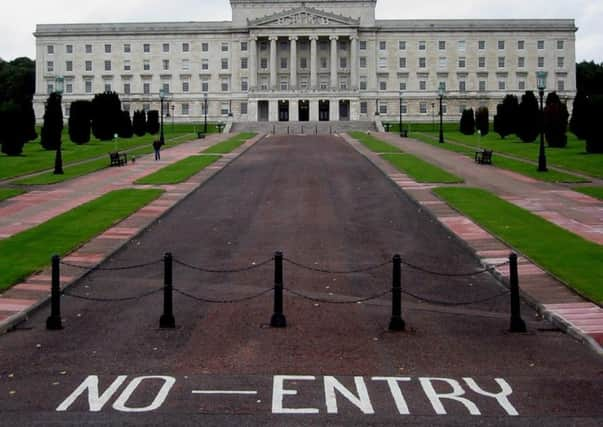‘Transformation needed’ in Northern Ireland’s food and farming policy


This should involve a new focus on producing good healthy food, restoring biodiversity, a movement towards a green economy, and a better deal for farmers.
These are among observations in a new report called Lay of the Land by the Royal Society for the encouragement of Arts, Manufactures and Commerce’s pan-UK Food Farming and Countryside Commission (FFCC).
Advertisement
Hide AdAdvertisement
Hide AdIt follows a Northern Ireland inquiry, which it described as “hearing stories of a system that simply isn’t working for farmers, for public health or for the environment”.
The report notes that existing issues such as the higher output of greenhouse gas emissions and a heavy reliance by farmers on European subsidies in the region, has been exacerbated by the ongoing absence of devolved government.
Patrick Casement, chair of the FFCC Northern Ireland Inquiry, said climate change and biodiversity loss are “existential threats that require us to take urgent action”.
“Northern Ireland may be a small place on the edge of Europe but our obligations to contribute to tackling these existential threats are essentially
Advertisement
Hide AdAdvertisement
Hide Adthe same as in any jurisdiction in the developed world,” he said.
“Unfortunately, we have a very poor record in meeting these obligations, partly because of past preoccupations with healing the damage of years of conflict, and partly because of inadequate policies and structures to deliver them.
“Over the past two and a half years this situation has been exacerbated by the absence of a devolved government which has severely hampered the development of the new policies and strategies required in a post-Brexit world.
“This political vacuum means that as a society we have to find other ways of addressing the key issues, which in turn provides a unique opportunity for much greater direct public engagement in developing ways forward.”
Advertisement
Hide AdAdvertisement
Hide AdMr Casement added: “We need to fundamentally reconsider the purpose of the complex food and farming system that governs so much of our health, our environment, our economy and our whole way of life. We need to build trust between everyone involved so that we can find practical ways forward to a safe and secure future.”
Dr Denis McMahon, Permanent Secretary of the Department of Agriculture, Environment and Rural Affairs, welcomed the report which he said complements the department’s vision of “a living working active landscape, valued by everyone”.
“The report raises many important points and challenges, including climate change, loss of biodiversity and the need to deliver safe and affordable food which we collectively must address as we seek to build the future of our agriculture and food sector,” he said.
The report will be launched at Hillsborough Castle on Monday.